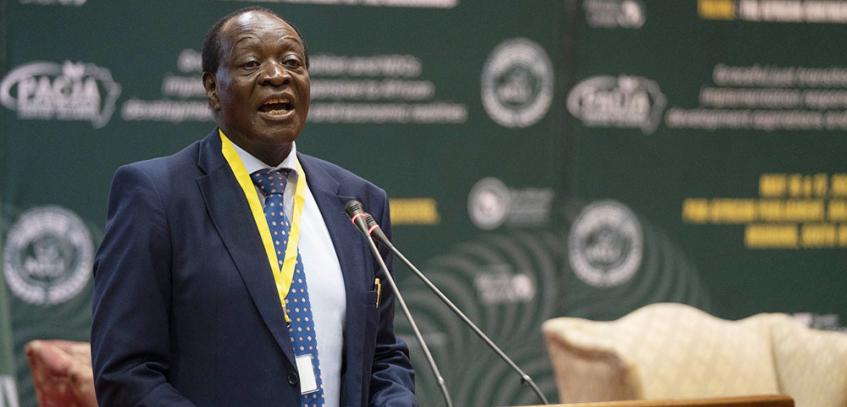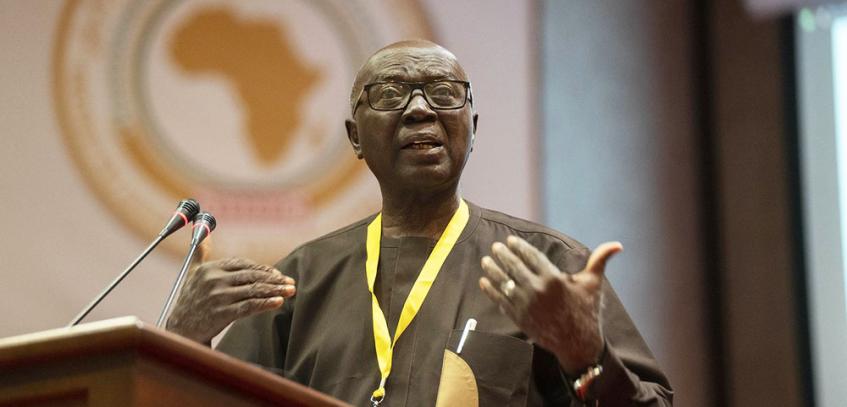African governments have to put in place the legal and policy framework at national and lower governmental levels in order to enable the continent to develop and implement an effective action plan to respond adequately to Climate Change.
This is what Hon. Wilbur Otichillo, Governor of Vihiga County in Kenya, offered as an African Climate Change solution to legislators attending the third Pan-African Parliament’s Summit on Climate Policy and Equity today in Midrand. He explained the approach saying that countries should domesticate their laws to their own environmental conditions.
“In Kenya, we have decided that out of the 47 county governments, each county enacts a climate change act and policy, domesticated to the conditions of their own environment. Now that we have done that, we have said that’s not enough - we also need strategies at county level. We’ve gone even lower, to even smaller administrative levels, to wards. We have ward Climate Change committees to make sure climate change is administered at the lowest level. With that structure we can reach people at a household level. And this I think is an approach that can be adopted anywhere on the continent,” he said.
Hon. Otichillo explains that from a funding perspective, as a country they have adopted a proactive approach and instead of waiting for donors, they have rather taken existing budgets and made allocations to deal with climate change related issues. Presenting a paper on Climate Change projections for Africa for the achievement of Agenda 2063 and Agenda 2030, as informed by the Intergovernmental Panel on Climate Change Sixth Assessment Report (IPCCC-AR6), was Prof. Seth Osafo, Legal Advisor, African Group of Negotiators to the United Nations Framework Convention on Climate Change (UNFCCC).
Prof. Osafo highlighted the significant impact climate change has had on Africa including reduced food production, economic growth, and biodiversity, as well as increased vulnerability to climate hazards, particularly for women, children, and the elderly.
“Agricultural productivity growth has been reduced by 34% since 1961 due to climate change, with maize and wheat yields decreased by 5.8% and 2.3% respectively in sub-Saharan Africa. Fisheries provide the main source of protein for approximately 200 million people in Africa and support the livelihoods of 12.3 million people. Mortality and morbidity will escalate with further global warming, placing additional strain on health and economic systems,” he said.
Prof Osafo explained that hydrological variability and water scarcity present risks to water-dependent sectors, requiring planning under deep uncertainty adding that water could be the next source of conflict in Africa. Climate change is also contributing to migration, within Africa. Where there is drought, communities move to areas where they can find food, including across borders.
“2.6 million and 3.4 million new weather-related displacements in sub-Saharan Africa occurred in 2018 and 2019. (migration). 1.7°C global warming by 2050 could result in 17-40 million people migrating internally, increasing to 56-86 million for 2.5°C. Climate-related infrastructure damage and repairs could cost up to USD 183.6 billion through 2100,” he said.
Prof Osafo concluded by saying that African needs to invest and fund more research so that early warning systems can be available to help mitigate risks for farmers, fishermen and the most vulnerable.











